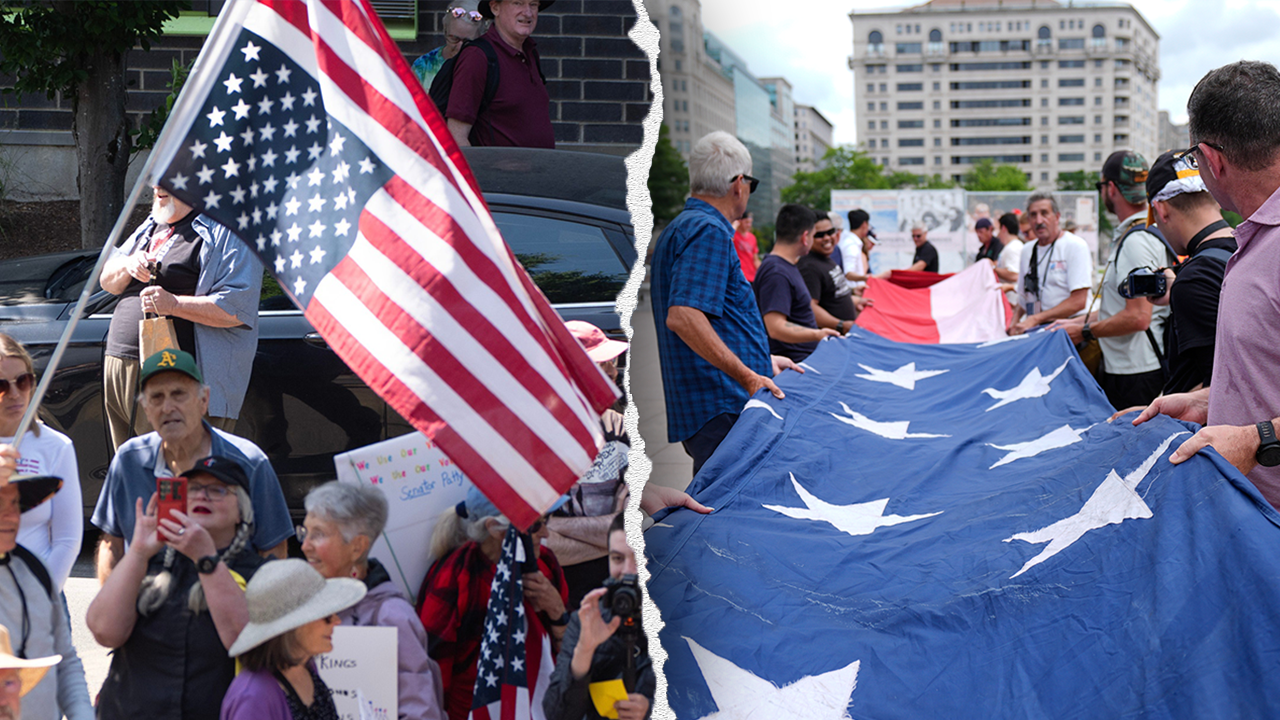U.S. President Donald Trump raises a fist as he steps off of Air Force One upon arrival at Calgary International Airport, before the start of the G7 summit, in Alberta, Canada, June 15, 2025.
Dave Chidley | Afp | Getty Images
Ongoing trade instability and turmoil in Ukraine and the Middle East are set to dominate talks, as leaders of the world’s largest advanced economic powers gather in Canada for this year’s Group of Seven (G7) summit.
With uncertainty over those major issues largely arising from the White House’s economic and foreign policy, allies are likely to ask whether U.S. President Donald Trump stands with them, or against them on major geopolitical points.
The G7 comprises the U.S., U.K., Canada, France, Germany, Italy and Japan, as well as representatives from the European Union and other guest participants. The leaders of Australia, Brazil, Mexico, Indonesia, Ukraine, South Africa and South Korea have also been invited to this year’s gathering.
These summits aim to facilitate a consensus on the biggest global economic and geopolitical challenges and to coordinate actions to tackle them.
The problem for the group this year comes from within, however, with Trump’s array of trade tariffs and a potential global trade war looming as live threats — barring for the U.K., which signed a trade deal with Washington in May.
The summit takes place while Trump’s 90-day pause on “reciprocal” tariffs is still in effect, with Japan and the EU looking to strike a deal before the July 9 deadline, when higher trade duties — currently lowered to 10% by Trump in the interim to allow deals to be negotiated — could return with a vengeance.
Canada was hit with a 25% tariff on autos and 50% duty on steel and aluminum imports, while goods not covered by the USMCA trade pact, which includes Mexico, are also subject to duties. Canada retaliated with its own 25% tariff on U.S. imports, although it has suspended some of those in order to protect domestic industries.
attacks between Israel and Iran have left hundreds dead and raised concerns about the global economy.
Israel’s staunch ally the U.S. stepped in to help shoot down Iranian missiles, while other global leaders have called to de-escalate tensions.
This backdrop of tariffs and conflict could well give rise to fireworks at the June summit in Canada, given Trump’s often contrarian and mercurial nature, analysts say.
“The last time Trump attended a G7 leaders’ summit in Canada, in 2018, he treated it like a reality TV show,” analysts at the Center for Strategic and International Studies said in analysis ahead of the meeting.
“With Trump’s tariff war in full swing and targeting the other countries in attendance, this meeting could be even more contentious than his last visit,” they noted. To avert another disastrous end to the G7 summit, the CSIS said global leaders needed to acknowledge and act upon Trump’s concerns “about U.S. global leadership.”
“In previous meetings, G7 members have made clear their interest in addressing technological advancements, public health, major wars, and other issues beyond the group’s traditional mandate. With many international institutions today paralyzed by geopolitical rivalries, the world needs concerted action now more than ever,” they noted.



